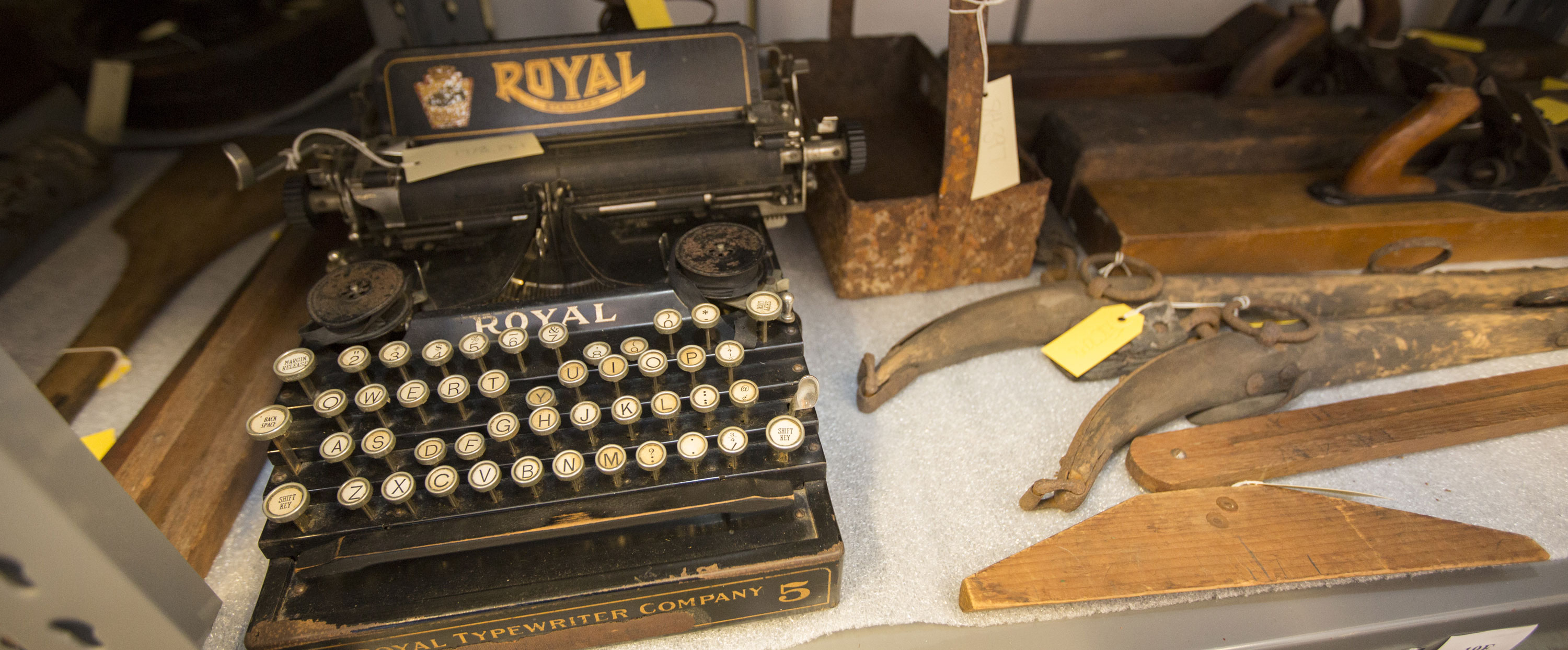A testament to a horrific aspect of a horrific war, this artifact also speaks to the human desire for remembrance.
Henry A. Muenster carried this gas mask kit when he served in the 79th Division in World War I. The kit is contained in a canvas carrying bag and consists of a mask that fits over the eyes and mouth that is connected to a canister, a booklet of instructions, and a tube of repair material. Private Muenster personalized the bag by writing his rank and initials on it and the line, “forget me not, I think of you each day.” The origin of this line and whom Henry may have been referring to is unknown, but we do know that he survived the war and returned to Dubuque. Henry later donated his gas mask to the Dubuque County Historical Society and lived until 1974.
Poison gas was first used as a large-scale weapon in WWI at the Battle of Ypres in 1915 when the Germans released chloride gas on April 22. Following this first attack, which killed an estimated 5,000 Allied soldiers and injured thousands more, both sides raced to develop new chemical weapons, as well as defenses against the new tactic of war.
Following the war, the debate over the ethics of chemical warfare raged. The mass death wrought by World War I, thanks in part to chemical warfare, horrified the world. Critics maintained the use of poison gas was inhumane, and caused casualties in civilians and noncombatants because it was impossible to control after its release. Proponents of chemical warfare argued the tactic was actually a more humane method of warfare than other weaponry.
Ultimately, 132 nations signed the Geneva Protocol in 1925, banning the use of chemical weapons in warfare. Sadly, this and other decisions have not banished these weapons to history. The United Nations estimates that chemical weapons have caused more than one million casualties since World War I.
Veterans Day is November 11th and marks the 104th anniversary of the armistice that ended World War I.

